-
KOSPI 2577.27 -2.21 -0.09%
-
KOSDAQ 722.52 -7.07 -0.97%
-
KOSPI200 341.49 +0.02 +0.01%
-
USD/KRW 1396 -2.00 0.14%
Korean aircraft maker KAI earmarks $3.4 bn in R&D investment by 2032
Aerospace & Defense
Korean aircraft maker KAI earmarks $3.4 bn in R&D investment by 2032
It will boost the development of KF-21 and FA-50 fighter jets, advanced air vehicles and autonomous driving technologies
Mar 17, 2023 (Gmt+09:00)
2
Min read
News+
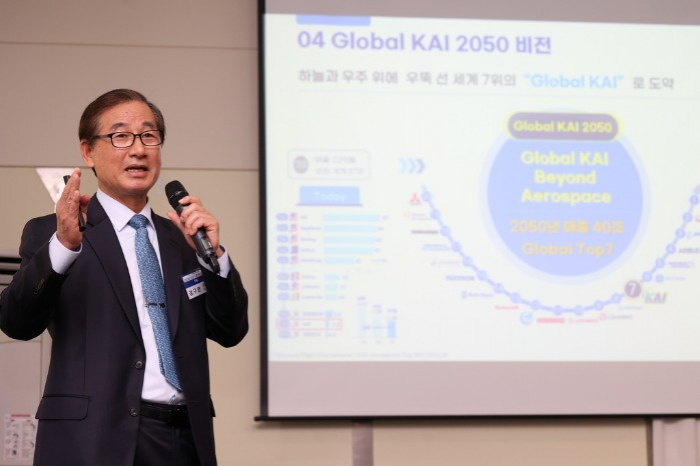
Korea Aerospace Industries Ltd. (KAI), South Korea’s sole military aircraft manufacturer, is set to pour 4.5 trillion won ($3.4 billion) into research and development over the next decade to become the world’s leading defense maker.
The firm’s CEO Kang Goo-young announced the plan at a press conference on Friday.
The company will inject 1.5 trillion won by 2027 for R&D, the CEO said. The investment breaks down into 710 billion won for the development of fighter jets including KF-21 and FA-50, 460 billion won for eco-friendly aircraft and advanced air vehicles (AAVs) and 330 billion won for artificial intelligence-powered autonomous driving technologies.
KAI ranked the world's 37th defense firm with $2.2 billion, or 2.9 trillion won, in revenue last year. With a recovery in jet exports, it aims to achieve 3.8 trillion won in revenue and receive new orders worth 4.5 trillion won this year, the CEO said.
The company will strive to increase its yearly revenue to 15 trillion won by 2030 and 25 trillion won by 2040. By 2050, it will become one of the world’s top seven defense manufacturers with 40 trillion won in revenue, said the CEO.
"We will focus on R&D of sixth-generation fighter jets, transport aircraft and AAVs to achieve our mid- to long-term vision,” he said.
Currently under development, sixth-generation fighter jets are conceptualized as outperforming fifth-generation ones, such as US' F-22 and China's J-20, with superior stealth, AI and maneuverability.
The company is in talks with Egypt for fighter jet exports and also looks to good news from the United Arab Emirates (UAE) soon, Kang said.
State-run the Export-Import Bank of Korea (KEXIM) owns more than a 26% stake in KAI. National Pension Service (NPS) of Korea owns more than 9%.
Market watchers have speculated that KAI might become an acquisition target for Korean conglomerate Hanwha Group. Kang denied such a prediction.
"We are aware that KAI is in demand and some companies are being talked about as potential buyers," Kang said.
"But Korea’s national security won’t be ensured if KAI, which accounts for 50-70% of the country’s aerospace industry, is sold to the private sector. More than 90% of KAI employees are against the sale of the company,” he added.
Bu Ik-Hwan Kim
lovepen@hankyung.com
Jihyun Kim edited this article.
More To Read
-
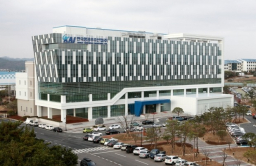 Aerospace & DefenseS.Korea's KAI signs $105 mn deal to supply parts for Boeing aircraft
Aerospace & DefenseS.Korea's KAI signs $105 mn deal to supply parts for Boeing aircraftFeb 28, 2023 (Gmt+09:00)
-
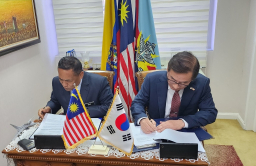 Aerospace & DefenseKAI inks deal to export 18 FA-50s to Malaysia
Aerospace & DefenseKAI inks deal to export 18 FA-50s to MalaysiaFeb 24, 2023 (Gmt+09:00)
-
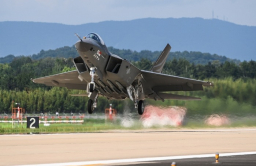 Aerospace & DefenseKAI expects 2023 sales to grow by a third, driven by fighter jets
Aerospace & DefenseKAI expects 2023 sales to grow by a third, driven by fighter jetsFeb 15, 2023 (Gmt+09:00)
-
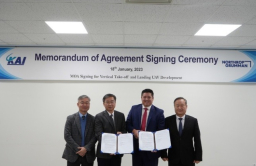 Aerospace & DefenseKAI signs agreement with Northrop Grumman to develop UAVs
Aerospace & DefenseKAI signs agreement with Northrop Grumman to develop UAVsJan 19, 2023 (Gmt+09:00)
-
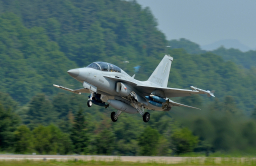 Aerospace & DefenseKorean military aircraft maker KAI to spend $1.1 bn on R&D
Aerospace & DefenseKorean military aircraft maker KAI to spend $1.1 bn on R&DDec 12, 2022 (Gmt+09:00)


